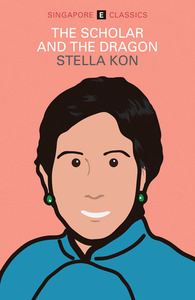Take a photo of a barcode or cover
adventurous
dark
informative
inspiring
slow-paced
Plot or Character Driven:
Character
Strong character development:
Yes
Loveable characters:
Yes
Diverse cast of characters:
Yes
Flaws of characters a main focus:
Yes
This book left me torn—on one hand, I was completely drawn in by its unique perspective on Singapore’s history, something I’d never encountered before. The way Stella Kon blends the 1910s revolutionary fervor of overseas Chinese with the quiet struggles of a Confucian scholar, Boon Jin, is fascinating. The writing itself is gorgeous—lyrical yet sharp, with a rhythm that makes you want to savor each sentence.
But I couldn’t quite pin down the point of it all. Is it about Boon Jin’s personal growth? The clash between tradition and revolution? The birth pangs of a nation? The book juggles so many themes—identity, loyalty, colonialism—that it sometimes feels like it’s trying to be everything at once. I loved the depth, but I kept wishing for a clearer narrative thread to pull me through.
That said, Kon’s personal connection to this history (her lineage ties to figures like Lim Boon Keng!) adds a layer of intimacy that’s hard to ignore. Even if the bigger picture eluded me, the small moments—Boon Jin’s moral dilemmas, the tension between scholars and radicals—stuck with me.
A book I’m glad I read, even if I’m still piecing together what it all means.
This review was crafted by AI based on my thoughts.
Dr Kirpal Singh was not lying when he mentioned that this book is one "which once we start reading, seems reluctant to have us put it down before finishing". Maybe I had enough time to finish it in one read, but this book clearly made me want to read more. Stella Kon's approach is direct and clear, illustrating the struggle for identity through the eyes of Boon Jin, a scholar with modest ideas.
I had an education in Singapore history, but only a brief one: history textbooks taught us from the days of British colonialism, but never went into detail regarding the involvement of Nanyang with mainland China. This book is a great platform for readers to know more about this particular period in time, especially for the young like me, who would have had absolutely no idea about the ideological struggles then. Who then, to portray this dilemma than the protagonist Boon Jin, who was caught between sticking with his chauvinistic Chinese roots and embracing the new modern ideas of democracy. Boon Jin's development as a person exudes maturity: he learns to adapt obsolete ideas, and also to maintain traditional, but equally reasonable virtues.
What I really liked about this novel is the addition of epigraphs at the start of every chapter, which serves to give a rather succinct overview of the events in that chapter. I enjoyed the sophisticated ideas of Boon Jin, and one struck me with its universal beauty and application:
"Heaven and earth exist forever, mountains and rivers never change, but a man's existence is impermanent."
A truly mature and astute remark for the scholar.
This book is one to read, especially for the younger adults looking to identify with a piece of Singapore's history.
I had an education in Singapore history, but only a brief one: history textbooks taught us from the days of British colonialism, but never went into detail regarding the involvement of Nanyang with mainland China. This book is a great platform for readers to know more about this particular period in time, especially for the young like me, who would have had absolutely no idea about the ideological struggles then. Who then, to portray this dilemma than the protagonist Boon Jin, who was caught between sticking with his chauvinistic Chinese roots and embracing the new modern ideas of democracy. Boon Jin's development as a person exudes maturity: he learns to adapt obsolete ideas, and also to maintain traditional, but equally reasonable virtues.
What I really liked about this novel is the addition of epigraphs at the start of every chapter, which serves to give a rather succinct overview of the events in that chapter. I enjoyed the sophisticated ideas of Boon Jin, and one struck me with its universal beauty and application:
"Heaven and earth exist forever, mountains and rivers never change, but a man's existence is impermanent."
A truly mature and astute remark for the scholar.
This book is one to read, especially for the younger adults looking to identify with a piece of Singapore's history.

